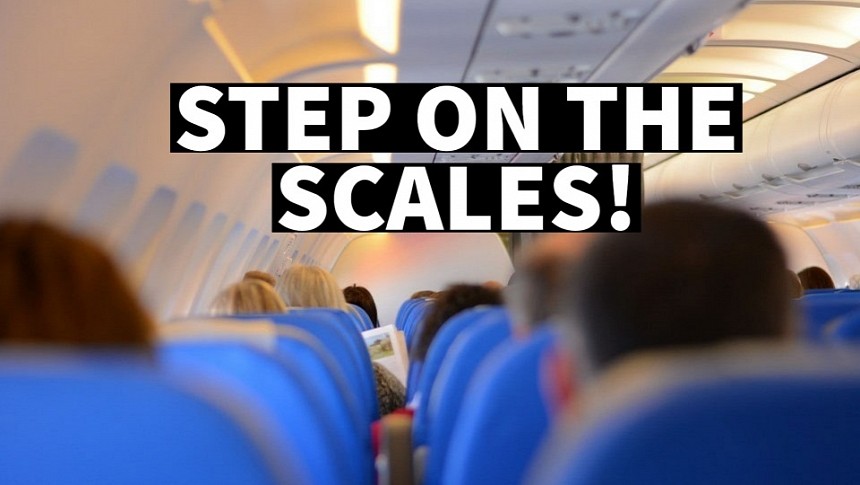No one likes having a stranger point out a "flaw," even if indirectly, and least of all, to have it done in a public space. On that same note, no one likes being weighed like cattle before boarding a flight, but it's bound to happen.
The Civil Aviation Authority of New Zealand is asking Air New Zealand to weigh its passengers for international flights so as to take part in a program that will continue until July 2, 2023. The program includes a two-part survey meant to improve load control onboard planes, with the first one taking part on domestic flights prior to the 2020 international health crisis. The second one, for international flights, was postponed when flights were grounded by the same health crisis.
Passengers boarding the 17-hour flight from Auckland, NZ, to NYC, U.S., will be weighed on digital scales at the same time as their luggage. As Alastair James, the airline's load control improvement specialist, explains, the passenger weight survey is meant to offer an insight into the load passengers represent on a particular flight.
Weight is a very private and potentially sensitive matter, but onboard an aircraft, everything is weighted, James argues. People shouldn't be an exception, not if airlines are to set average weights that then go into calculating the amount of fuel needed for each route. The only concession the specialist makes is that passengers' data will be kept private and duly protected.
The issue of weighing passengers, even if only for a limited period with the purpose of conducting a survey, is bound to be a controversial one. The idea of putting passengers on scales to better determine the amount of fuel required for each flight has been thrown around before, more or less in a casual manner for several years. It never took root because of pushback from passengers and various advocacy groups, who feel this is just the first step towards weight discrimination.
Rather than lose clients or face a PR nightmare, airlines chose to keep going as before instead of pursuing it further.
At the basis of the idea of weighing passengers is simple math: depending on the weight of the load, the route, and the type of aircraft, a certain amount of fuel is necessary. Today, airlines use outdated weight averages for passengers while they weigh everything else. To prevent running out of fuel before landing and knowing that the weight averages are outdated, airplanes overload on fuel, which makes them less efficient and more polluting. Neither is desirable in the context of the need to reduce the carbon footprint of the aviation industry, including on commercial flights.
This survey would serve to update NZ weight averages, but it's unlikely to go down easily with advocacy groups.
Passengers boarding the 17-hour flight from Auckland, NZ, to NYC, U.S., will be weighed on digital scales at the same time as their luggage. As Alastair James, the airline's load control improvement specialist, explains, the passenger weight survey is meant to offer an insight into the load passengers represent on a particular flight.
Weight is a very private and potentially sensitive matter, but onboard an aircraft, everything is weighted, James argues. People shouldn't be an exception, not if airlines are to set average weights that then go into calculating the amount of fuel needed for each route. The only concession the specialist makes is that passengers' data will be kept private and duly protected.
The issue of weighing passengers, even if only for a limited period with the purpose of conducting a survey, is bound to be a controversial one. The idea of putting passengers on scales to better determine the amount of fuel required for each flight has been thrown around before, more or less in a casual manner for several years. It never took root because of pushback from passengers and various advocacy groups, who feel this is just the first step towards weight discrimination.
Rather than lose clients or face a PR nightmare, airlines chose to keep going as before instead of pursuing it further.
At the basis of the idea of weighing passengers is simple math: depending on the weight of the load, the route, and the type of aircraft, a certain amount of fuel is necessary. Today, airlines use outdated weight averages for passengers while they weigh everything else. To prevent running out of fuel before landing and knowing that the weight averages are outdated, airplanes overload on fuel, which makes them less efficient and more polluting. Neither is desirable in the context of the need to reduce the carbon footprint of the aviation industry, including on commercial flights.
This survey would serve to update NZ weight averages, but it's unlikely to go down easily with advocacy groups.








